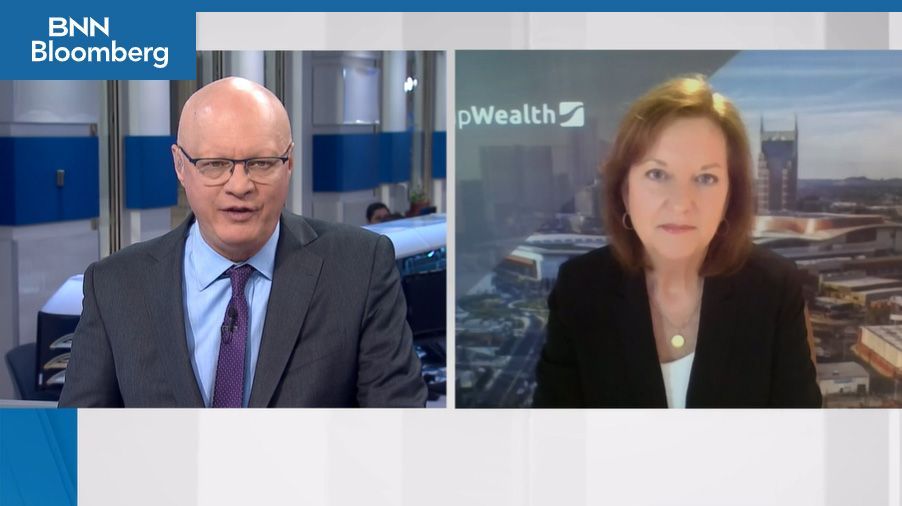Your Money: Child Tax Credit Expanded only For 2021
August 21, 2021
Tax changes and proposals affect our financial planning. Here's a primer on child tax credit and flat retirement credits.
Over the last few months, we've discussed ordinary income, capital gains, and estate and gifts. In this final article, we’ll discuss two remaining items: the child tax credit, and flat retirement credits.
- Estate and gifts: https://www.tennessean.com/story/money/2021/05/17/how-president-bidens-estate-gift-tax-changes-might-affect-your-plan/5090387001/
- Capital gains: https://www.tennessean.com/story/money/2021/03/19/how-biden-proposes-change-capital-gains-taxes/4747019001/
- Ordinary income: https://www.tennessean.com/story/money/2021/02/08/what-tax-changes-can-we-expect-biden-administration/4386592001/
While there are other proposed deductions and credits (like reinstating the first-time homebuyer credit or capping deductions at 28%), that we will address if or when there is more likelihood of them passing. For now we will focus on these two.
While there are other proposed deductions and credits (like reinstating the first-time homebuyer credit or capping deductions at 28%), that we will address if or when there is more likelihood of them passing. For now we will focus on these two.

Child tax credit.
This credit got passed with the American Rescue Plan in March 2021, along with the third round of stimulus checks. This currently only impacts the 2021 tax year and would need further legislation in order to continue beyond that.
How did it change? This was previously a credit of $2,000 per child and expanded to $3,000 per child ($3,600 for children under 6). Not only is it fully refundable for 2021, but it is also partially paid in advance (from July to December 2021) in monthly payments with a maximum of $250-$300 per child.
Phaseouts? The new expanded credit begin at $150,000 for married-filing-joint ($75,000 individual); phaseouts for the original $2,000 credit per child still remain at $400,000 married-filing-joint ($200,000 individual).
Flat retirement credits.
(Unlike the child tax credit, this has not yet been passed).
What is it? Our current tax law allows individuals to deduct contributions to retirement accounts (like 401(k)s and IRAs) from income. Biden’s proposal, however, would replace the deduction with a flat credit (likely 26%, which is revenue-neutral to the federal government).
How is a 26% flat credit different from a deduction? The value of a deduction rises as income increases. For example, an individual with a marginal tax bracket of 37% may receive a $37 tax benefit for every $100 contributed to a retirement account. And an individual in the 10% marginal tax bracket would receive a $10 benefit. Flat credits, on the other hand, would provide the same benefit to individuals regardless of tax bracket (likely $26 regardless of tax bracket). This works out better for those in lower brackets but worse for those in higher brackets. The rationale behind the proposal would be to encourage those in lower brackets to save more for retirement.
What does this mean for anyone saving for retirement? Under current law, it has generally made sense for higher earners to save in traditional (pre-tax) retirement accounts and those in lower brackets to save in Roth (after tax) accounts. This proposal, however, would make the opposite true. Roth accounts would become more attractive for higher earners (because the credit would be lower than their marginal tax rate), while traditional accounts would be more attractive to everyone else because the credit would be higher than their marginal tax rate.
While some things have already changed (like the child tax credit), other proposals may not materialize. Either way, we want to keep you informed to make decisions as things progress.
What changed with the child tax credit?
On March 11, 2021, the American Rescue plan was signed into law by President Biden. A $1.9 trillion package. Along with the third round of stimulus payments, the major change was the expansion of the child tax credit.
What was the child tax credit to begin with?
This was originally a $2,000 credit for each child under age 17 ($1,400 of which was refundable).
How has it changed?
With the American Rescue Plan, this was expanded to a fully-refundable credit of $3,000 per child ($3,600 per child under the age of 6).
How much is paid in advance?
Half of the credit will be paid in advance monthly from July to December. The other half will be credited after filing a 2021 tax return.
Who is eligible?
Income phaseouts for the expanded portion of the credit for individuals over $75,000 ($150,000 married). Phaseouts for the original $2,000 credit per child remain at $200,000 individual ($400,000 married).
Will it continue past 2021?
Unless future legislation is passed, the expanded credit will only be for 2021 and revert to previous amounts in 2022.
For additional questions, you can turn to the Child Tax Credit Update Portal at irs.gov. You can also ask your financial advisor or reach out to our team for help.
Hunter Yarbrough is an executive vice president and financial adviser with CapWealth. For more information about Hunter and CapWealth, visit capwealthgroup.com.













